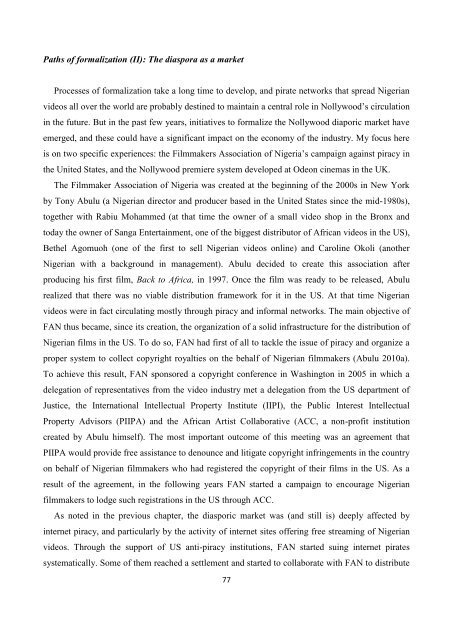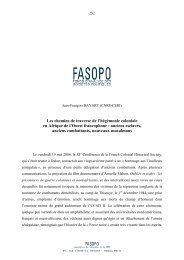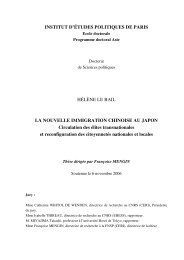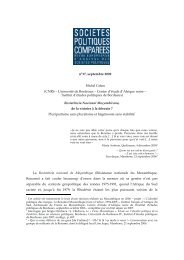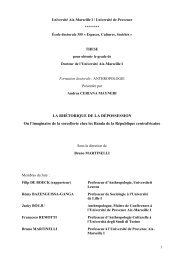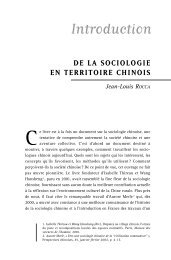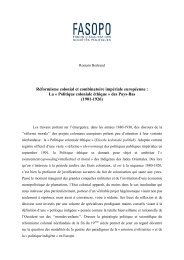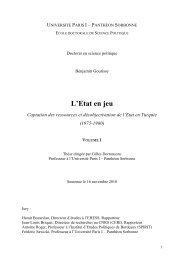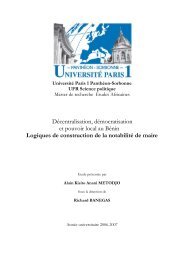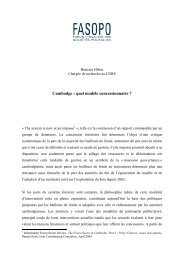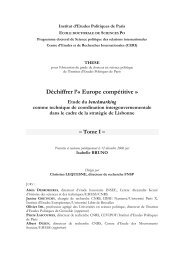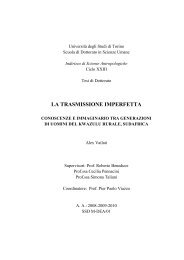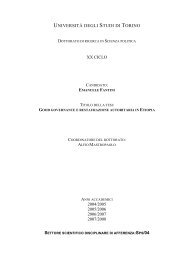You also want an ePaper? Increase the reach of your titles
YUMPU automatically turns print PDFs into web optimized ePapers that Google loves.
Paths of formalization (II): The diaspora as a marketProcesses of formalization take a long time to develop, and pirate networks that spread Nigerianvideos all over the world are probably destined to maintain a central role in Nollywood’s circulationin the future. But in the past few years, initiatives to formalize the Nollywood diaporic market haveemerged, and these could have a significant impact on the economy of the industry. My focus hereis on two specific experiences: the Filmmakers Association of Nigeria’s campaign against piracy inthe United States, and the Nollywood premiere system developed at Odeon cinemas in the UK.The Filmmaker Association of Nigeria was created at the beginning of the 2000s in New Yorkby Tony Abulu (a Nigerian director and producer based in the United States since the mid-1980s),together with Rabiu Mohammed (at that time the owner of a small video shop in the Bronx andtoday the owner of Sanga Entertainment, one of the biggest distributor of African videos in the US),Bethel Agomuoh (one of the first to sell Nigerian videos online) and Caroline Okoli (anotherNigerian with a background in management). Abulu decided to create this association afterproducing his first film, Back to Africa, in 1997. Once the film was ready to be released, Abulurealized that there was no viable distribution framework for it in the US. At that time Nigerianvideos were in fact circulating mostly through piracy and informal networks. The main objective ofFAN thus became, since its creation, the organization of a solid infrastructure for the distribution ofNigerian films in the US. To do so, FAN had first of all to tackle the issue of piracy and organize aproper system to collect copyright royalties on the behalf of Nigerian filmmakers (Abulu 2010a).To achieve this result, FAN sponsored a copyright conference in Washington in 2005 in which adelegation of representatives from the video industry met a delegation from the US department ofJustice, the International Intellectual Property Institute (IIPI), the Public Interest IntellectualProperty Advisors (PIIPA) and the African Artist Collaborative (ACC, a non-profit institutioncreated by Abulu himself). The most important outcome of this meeting was an agreement thatPIIPA would provide free assistance to denounce and litigate copyright infringements in the countryon behalf of Nigerian filmmakers who had registered the copyright of their films in the US. As aresult of the agreement, in the following years FAN started a campaign to encourage Nigerianfilmmakers to lodge such registrations in the US through ACC.As noted in the previous chapter, the diasporic market was (and still is) deeply affected byinternet piracy, and particularly by the activity of internet sites offering free streaming of Nigerianvideos. Through the support of US anti-piracy institutions, FAN started suing internet piratessystematically. Some of them reached a settlement and started to collaborate with FAN to distribute77


